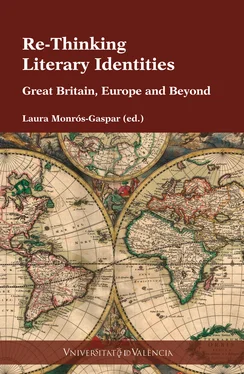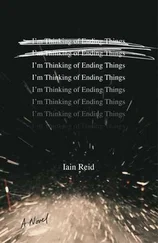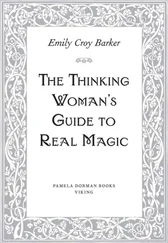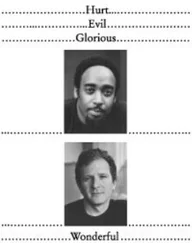The first anthology, Nua-bhàrdachd Ghàidhlig/Modern Scottish Gaelic Poems , was edited by Donald MacAulay (Dohmnall MacAmhlaigh) and first published in 1976. It includes poems by five authors, and their own translations into English: Sorley MacLean (Somhairle MacGill-Eain), George Campbell Hay (Deòrsa Mac Iain Deòrsa), Derick Thomson, Iain Crichton Smith and Donald MacAulay himself, who also provides a substantial introduction and biographical notes on the contributors. This is the backbone of Modernism in the Scottish Gaelic poetical tradition, linking the self-contained bardic and popular past with the wider world of the 1930s and the future.
Sorley MacLean (1911-96) was born in Osgaig, in the isle of Raasay (Ratharsair), off the coast of eastern Skye (an t-Eilean Sgitheanach). He is the central Scottish Gaelic poet in the central decades of the twentieth century. His first collection of poems in Gaelic, the seminal Dàin do Eimhir agus Dàin Eile ( Poems to Eimhir and Other Poems ), published in 1943, 7 paved the way for the poets to come, showing how the language could be used in poetry for contemporary relevance. He marries love and politics in his writing, with committed views on the Spanish Civil War and the advent of Fascism. His poems are often inhabited by the ghosts of those evicted from their communities in successive clearances, as in the well-known Hallaig , first published in Gairm in 1954. The poem was translated into English by Seamus Heaney in 2002. MacLean selected and collected his work several times during his lifetime with his own English translations, 8 and now the standard collection of his poems is Caoir Gheal Leumraich/White Leaping Flame: Collected Poems in Gaelic With English Translations , edited by Christopher Whyte and Emma Dymock in 2011.
George Campbell Hay (1915-84) 9 was a multilingual poet and translator. He wrote in Gaelic, Scots, and English, but also in French, Italian and Norwegian, and could speak and read several other languages. Among his many translations into Gaelic stands out his work on the sonnets of Petrarch. His style is imbued with classical, technical prowess. His collection Fuaran Sléibh was hailed with enthusiasm when it was published in 1947. Although born in Elderslie (Ach na Feàrna) in Renfrewshire, his life was connected with Tarbert (Tairbeart Loch Fine) in Argyll, Edinburgh, and the Mediterranean, where he was a soldier in the Second World War. His long poem Mochtàr is Dùghall (composed in the 1940s and published in 1982) is based on his experiences in Algeria and Tunisia. Michel Byrne edited his Collected Poems and Songs in 2000.
Derick Smith Thomson (1921-2012), born in Upper Bayble in the island of Lewis, was the most relevant figure in the field of Gaelic studies and writing in the second half of the twentieth century. His influence as poet, scholar, and publisher and mentor of young writers was crucial for the growth and development of Gaelic culture. As a poet, his own personal evolution from the traditional metres and themes in An Dealbh Briste: Gaelic poems, with Some Translations in English (1951), to the free verse and cosmopolitan views of his later poetry marked the passage from MacLean to the present for Gaelic contemporary poets. He collected his poems up to 1980 in Creachadh na Clàrsaich/Plundering the Harp (1982), and he continued to publish until 2007: Sùil air Fàire: dain ùra/Surveying the Horizon: Recent Poems . In these poems, Glasgow is no longer seen as a place of exile—a recurrent scene in the Gaelic tradition—but ‘like his Glasgow contemporaries Alasdair Gray and Edwin Morgan’ as ‘a place where heaven and hell can be found together’ (O’Gallagher 2009: 63). His fertile work as a scholar includes An Introduction to Gaelic Poetry (1974) and The Companion to Gaelic Scotland (1983). As a publisher, amongst many other ventures, he co-founded Gairm in 1951 and directed the magazine and the publishing house on his own since 1964. In 1990 he edited Bardachd na Roinn-Eorpa an Gaidhlig/European Poetry in Gaelic . In 2011, in celebration of his 90th birthday, several of the poets he helped and advised (Meg Bateman, Angus Peter Campbell, Jim Carruth, Anna Frater, Rody Gorman, Liz Lochhead, Peter Mackay, Aonghas MacNeacail, Robyn Marsack, and Niall O’Gallagher) chose their own favourite poem by Thomson and the Gaelic Books Council (Comhairle nan Leabhraichean)—which he founded in 1968—and the Scottish Poetry Library published Mar Chomharra. Ruaraidh MacThòmais aig 90/Derick Thomson at 90: A Celebration . 10
Iain Crichton Smith (1928-98) was born in Glasgow (Glaschu), and reared in Upper Bayble, Lewis. He was a prolific writer, both in Gaelic and English: poems, short stories and novels, plays… ‘It is undoubtedly fair to say that Smith the storyteller has had a greater impact on Gaelic literature than Smith the poet’ (Black 1999: 794), but for his poems in English he is considered amongst the finest Scottish authors of his generation. His 1971 translation of Sorley MacLean’s Poems to Eimhir played a key role in securing MacLean’s reputation for English readers. In 1987 he published his last collection of Gaelic verse, An t-Eilean agus An Cànan . He also wrote essays and criticism, mainly in English. A highly interesting selection, Towards the Human (1986), contains precious autobiographical pieces and articles about Hay, MacAulay, MacLean and Thomson, and several essays on Hugh MacDiarmid and other Scottish poets.
Donald MacAulay was born in 1930 in Bernera (Beàrnaraigh), an island off the west coast of Lewis. He is an academic, a scholar, and a poet, and has had a distinguished career, with numerous official duties. His early poetry was published in Seobhrach ás a’ Chlaich/Primrose from the Stone (1967), and in 2008 he collected his poems in Deilbh is Faileasan . His use of language is as complex as his relationship with his own community. 11 Besides this first anthology, he also edited Oighreachd agus Gabhaltas (1980), on the land riots of the late nineteenth century—amongst them, the Bernera riot of 1874—and The Celtic Languages (1992).
An Aghaidh na Sìorraidheachd/In the Face of Eternity: Ochdnar Bhard Gàidhlig/Eight Gaelic Poets is the title of the second anthology, edited by Christopher Whyte (Crìsdean Whyte, Crìsdean MacIlleBhàin) and published in 1991. The collection, which includes an introduction by the editor and short presentations and English translations provided by the poets, gathers authors and poems from the two generations of poets who followed and extended the paths opened by MacLean and Thomson: Meg Bateman, Myles Campbell (Maoilios Caimbeul), Anne Frater, Fearghas MacFhionnlaigh, Aonghas MacNeacail, Catriona Montgomery (Catrìona NicGumaraid), Mary Montgomery (Mairi NicGumaraid), and Christopher Whyte himself.
Donald MacAulay wrote in his review of the anthology in Gairm that he did not think many of the poems included were ‘very Gaelic’ or had ‘much connection with the tradition, with Gaelic convention’ (quoted and translated in Black 1991: lxiii-iv). Indeed, his argument is a mere statement of fact: the younger poets expand their inheritance and find still newer reaches for those same limits that MacAulay and his contemporaries expanded in their turn.
Vivienne Margaret (Meg) Bateman was born in 1959 in Edinburgh (Dùn Èideann), and learnt Gaelic as an adult. Her first book of poems, Òrain Ghaoil/Amhráin Ghrá , appeared in 1990 and was published in Dublin (Baile Átha Cliath) with translations into Irish Gaelic ( Gaelige ) by Alex Osborne. With her love poems, rhythmical and rhymed, she brought a new, ironic voice to the song tradition of Gaelic women writers. In 1997 she published Aotromachd agus Dàin Eile/Lightness and Other Poems , where she included her two first collections with her own English translations. Her latest collection, intercalating Gaelic poems, their English translations, and poems in English, Transparencies , appeared in 2013. 12
Читать дальше










